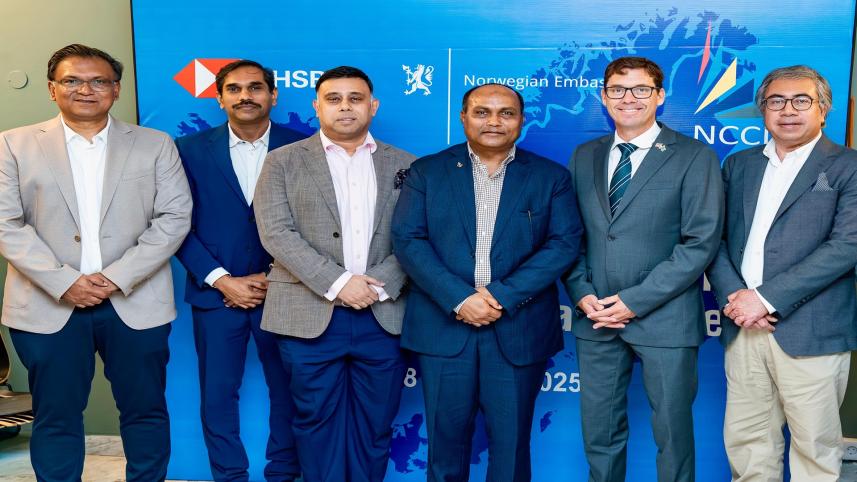Speed up logistics reforms to sustain trade growth: stakeholders

Bangladesh must accelerate reforms in its logistics sector, widely regarded as the backbone of the country's global trade, if it is to sustain export growth and remain competitive as preferential trade agreements begin to phase out in the coming decade, industry stakeholders warned today.
Speaking at a business session hosted by Norwegian Ambassador Håkon Arald Gulbrandsen at his residence, they called for speeding up digitalisation of clearance processes, implementing strategic port projects on time, promoting multimodal transport, and embedding sustainability into future logistics planning.
The session, "Navigating the Future: The Evolving Landscape of Logistics in Bangladesh," was jointly organised by the Royal Norwegian Embassy in Dhaka, HSBC Bangladesh and the Nordic Chamber of Commerce and Industry (NCCI), reads a press statement.
Regulators, global operators, and economic experts at the event discussed how Bangladesh can address persistent bottlenecks in trade facilitation, reduce logistics costs, and enhance competitiveness as the country undergoes economic transformation.
Without urgent reforms, the country risks losing ground in global value chains as preferential trade agreements expire in the coming decade, said keynote speaker M Masrur Reaz, chairman and CEO of Policy Exchange Bangladesh.
He stressed that even small improvements could yield large gains. For instance, a 1 percent cut in transport costs could increase garment exports by around 7.4 percent, while reducing overall logistics costs by 25 percent could boost national exports by 20 percent.
Speakers at the event also highlighted that over 90 percent of Bangladesh's trade is handled through Chittagong port, leaving the economy dependent on a single gateway.
While projects such as the Bay Terminal, Matarbari deep-sea port, and Mongla expansion are in progress, delays in customs clearance, infrastructure gaps, and policy bottlenecks remain major challenges, they said.
"An efficient logistics sector is not just a priority, it is a necessity," said Ambassador Gulbrandsen.
NCCI President Tanveer Mohammad and HSBC Bangladesh CEO Md Mahbub ur Rahman also underscored the need for reforms and greater collaboration.



 For all latest news, follow The Daily Star's Google News channel.
For all latest news, follow The Daily Star's Google News channel.